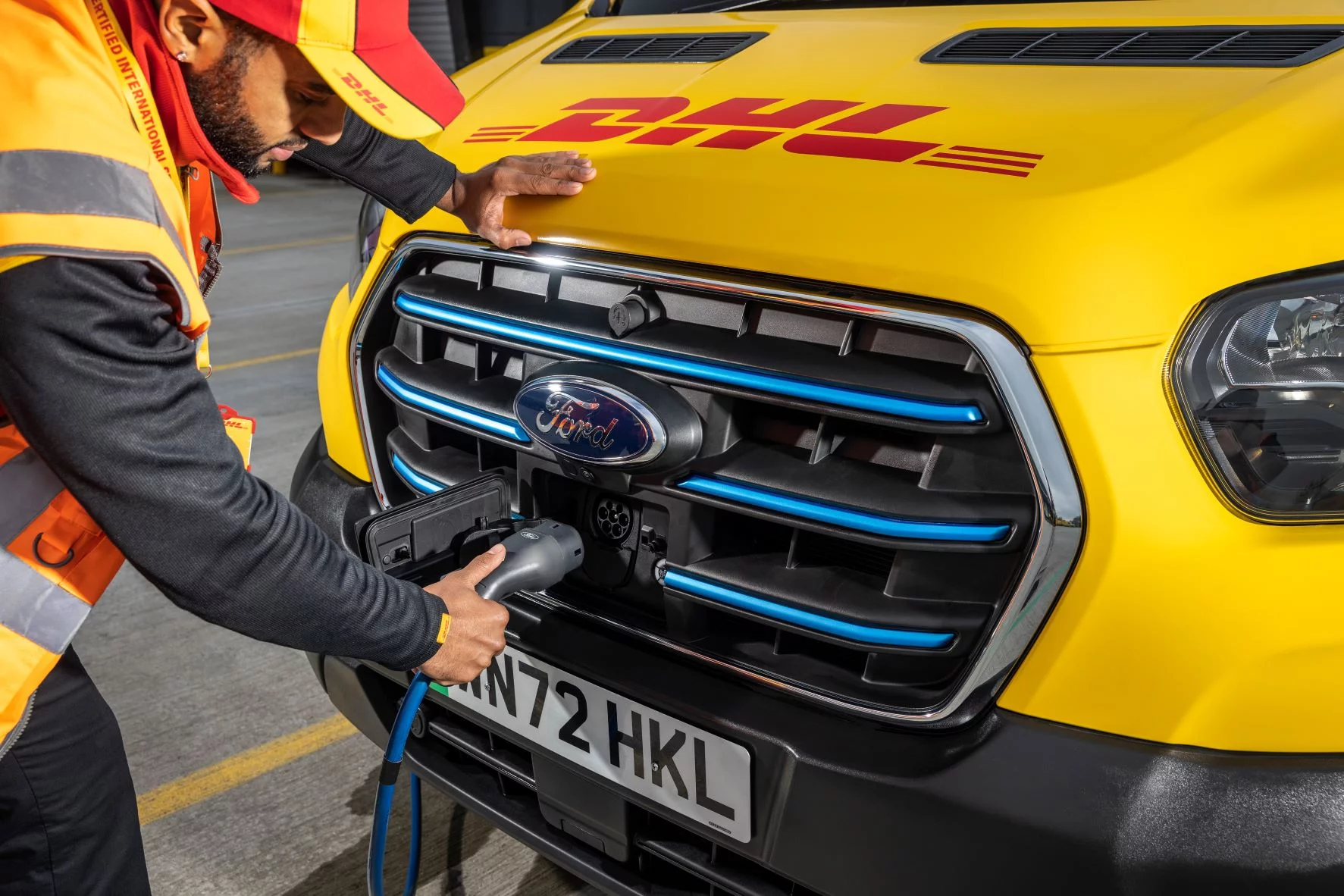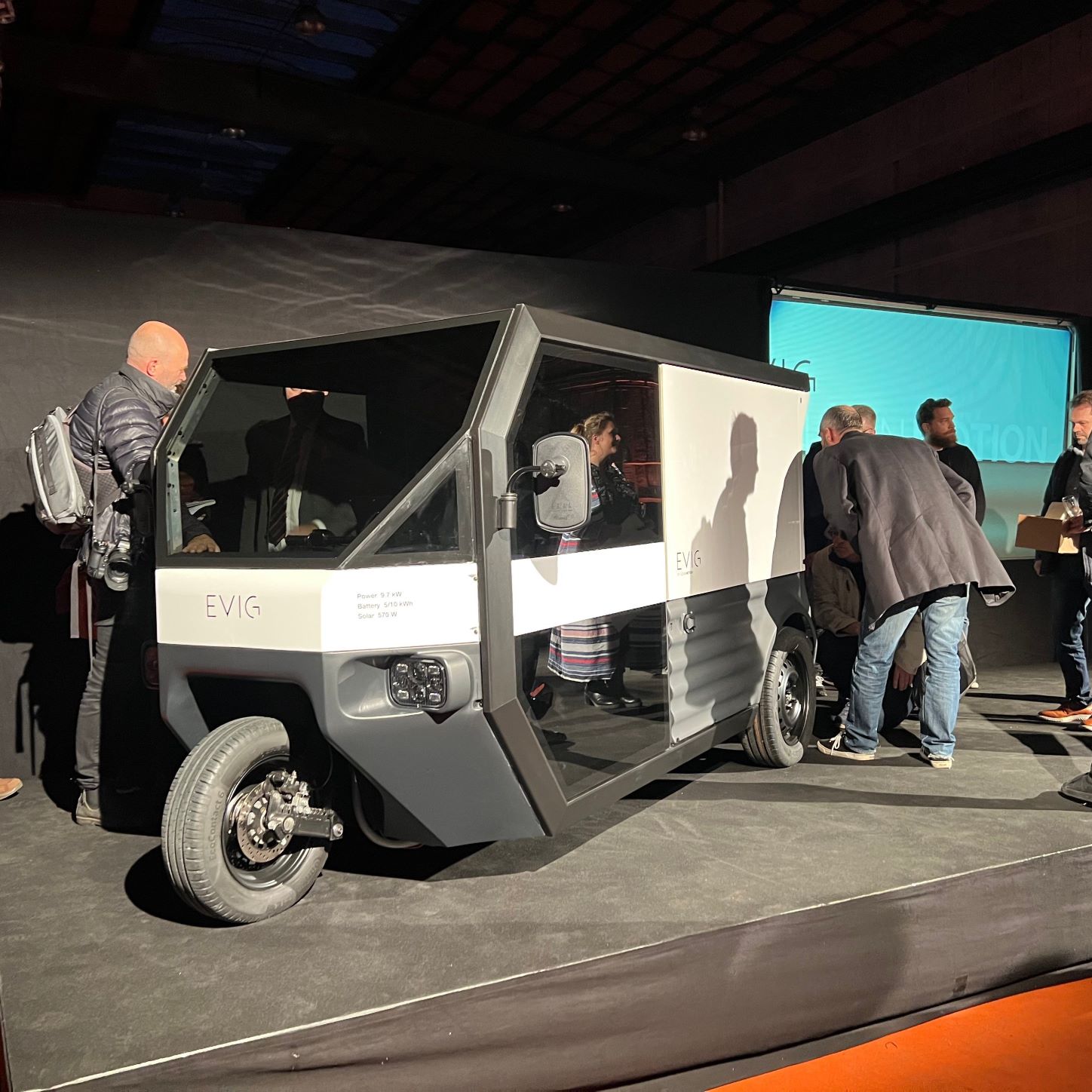Ford Pro and Deutsche Post DHL Group have signed a Memorandum of Understanding to accelerate the deployment of electrified vans used for logistics operations worldwide. In doing so, both companies outline their commitment to provide sustainable/green services.
Underscoring the planned collaboration, Ford Pro will equip Deutsche Post DHL Group with more than 2,000 electric delivery vans worldwide by the end of 2023 to enhance its leading position in using electric vans for last-mile delivery worldwide. The inked agreement covers a full suite of solutions to operate the electric fleet including access to Ford Pro’s connected E-Telematics software and charging solutions in order to reduce costs and optimise efficiency as a part of the two organisations’ common zero emission goals.
Ford is targeting zero emissions for all vehicle sales and carbon neutrality across its European footprint of facilities, logistics and suppliers by 2035, and carbon neutrality globally no later than 2050.
Deutsche Post DHL Group, the world’s leading logistics company, is committed to strengthen clean operations for climate protection and will invest €7bn in the current decade on its path to net-zero emissions logistics. Deutsche Post DHL Group is targeting a share of 60% e-vehicles used for carbon neutral pick-up and delivery by 2030, now also powered by Ford Pro’s line-up of electrified vehicles including the all-new E-Transit.
Ford and DHL share vision
“Ford Pro and Deutsche Post DHL Group share the vision of greater sustainability and a commitment to electrified solutions, and this agreement is a major step towards millions of deliveries being completed by electrified vehicles around the world. E-Transit is the top-selling commercial EV in North America and since June is also the best-seller in its segment in Europe, meaning the all-electric 2-tonne van is already making big strides to support this ambition,” said Hans Schep, general manager, Ford Pro, Europe.
“Electrification of last-mile logistics is a major pillar to decarbonize our operations. Adding the new Ford E-Transit to our global fleet of around 27,000 electric vans further strengthens our capability of providing green delivery services worldwide. Joining forces to address our logistics specific requirements will drive operational and service efficiency further,” said Anna Spinelli, Chief Procurement Officer & Head of Mobility, Deutsche Post DHL Group.
Ford Pro has already handed over its first E-Transits under the agreement, joining Deutsche Post DHL Group’s electric fleet used for last-mile deliveries in several countries worldwide. The order volume concentrates on the E-Transit panel vans designed for handling express shipments in the Americas and Europe. The vehicles join the Deutsche Post DHL Group fleet at the busiest time of year making more sustainable deliveries possible to customers during peak season. Additionally purchases of Ford Pro Special Vehicles with a customized box for inner city distribution in Germany, were concluded.
The Memorandum of Understanding, signed by Ford and Deutsche Post DHL Group, will potentially allow both companies to explore the co-development of future products as well as new digital and charging solutions. In addition to providing early access to innovative ideas, Ford Pro will also deliver Deutsche Post DHL Group access to test vehicles and monitoring services as the two companies explore to expand their cooperation to a growing number of markets globally.




